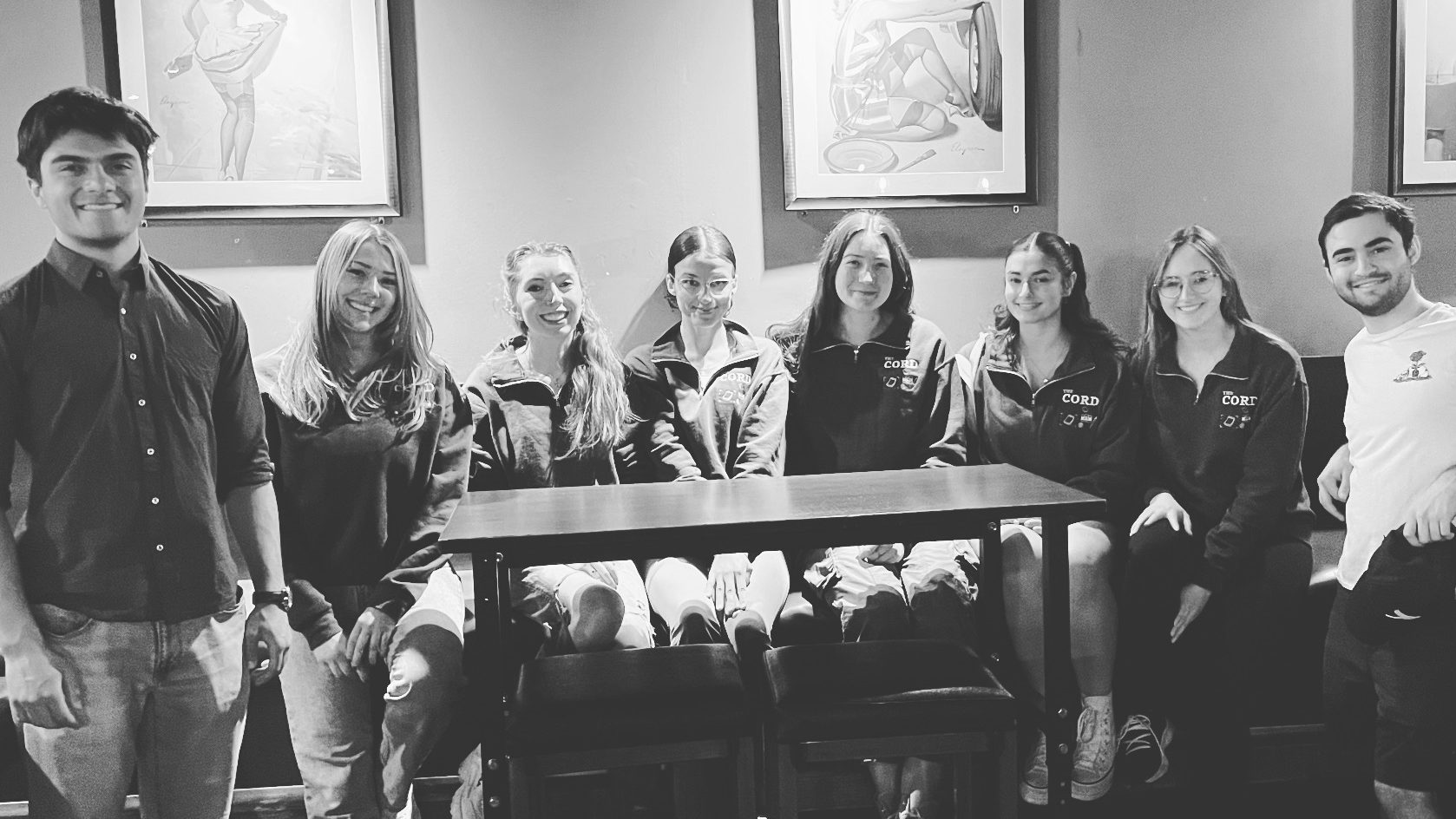
Wilfrid Laurier University has been a part of Mike McMahon’s life for as long as he can remember.
Whether it was attending Homecoming celebrations as a child with his father and uncle, both Laurier alumni — his father, Mike Sr., the first All-Canadian football player in school history — coming to campus for his own university career or starting full-time work with the Wilfrid Laurier University Student’s Union following graduation, McMahon has spent a good part of his life in the block bordered by King, Bricker, Albert and University.
So it will certainly be with some sadness that the WLUSU general manager leaves for his hour-long drive home to Woodstock this Friday, knowing that come Monday morning, he will not be returning to the place he’s worked and studied at for the better part of the past two decades.
It was announced earlier this month that McMahon would be leaving his post with WLUSU to pursue a career as the executive director for the Canadian Mental Health Association, allowing him to reduce that hour-long commute he’s made so many times to a what he calls a 15-minute walk to his new job.
“There is a sadness there mostly because of the relationships,” he said. “I just know in the real world you can only maintain so many close relationships that are kept close by working together, so I’m sad that some of those relationships will change.”
Though he spent much of his childhood on the WLU campus, McMahon officially became part of Laurier in 1992 when he began his undergraduate degree in physical education.
Throughout much of his time as a student, McMahon admits that he didn’t even know what the Students’ Union was.
It wasn’t until his friend Ralph Spoltore was elected WLUSU president in McMahon’s final year at school that he had any exposure to the union, but when he graduated, the thought of working at the union didn’t cross his mind.
“After I graduated I was back in Woodstock, building school buses and it was just a summer job that extended into the fall and I was just going to stay there for a while,” said McMahon.
But then McMahon got a phone call from an old friend from his days working in Residence Life at Laurier encouraging him to replace current Laurier AVP: student services Dan Dawson who had moved on from the programming and services manager. McMahon would hold that job until 2001, at which point he had finished his MBA.
He would then leave Laurier briefly for a two-year stint working at a long-term care facility in Hamilton.
When the position of WLUSU general manager opened up in 2003, McMahon returned to WLU.
The nine years McMahon has spent as WLUSU’s general manager has seen the Union undergo what he sees significant changes — changes that mainly began six years ago.
“We selected an off-campus third party market research firm to assess the value of the Students’ Union in the community that we serve and the news that we got back was devastating from a marketing point of view,” said McMahon, referring to the research that showed that 40 per cent of students found value in the Students’ Union.
“Some people thought ‘40 per cent, that’s awesome’. Except that was a market that has to pay us a mandatory fee, so 60 per cent of the market that also had to pay the mandatory fee couldn’t give a crap whether we existed or not. That’s tough news.”
According to McMahon, it was that realization that prompted the Union to shift its focus away from business and towards student support and advocacy. That mentality has been responsible for changes such as the outsourcing of the Terrace Food Court and replacing of The Centre Spot with International News.
“We took over the food court in 2000, we stopped advocating for food because all of the sudden we were operating. It’s tough to be and advocator and an operator — you’re conflicted,” said McMahon.
“I will say that I think Wilf’s and the Turret must always be operated by the Students’ Union because while we were certainly not the best food court operator… I think if the university or anybody else other than students were to run [Wilf’s and the Turret], they’d very quickly run them into the ground.”
Throughout his time at WLUSU, McMahon has had to toe a delicate line, attempting to avoid stifling the elected student leaders, which turnover every year. The key in his eyes is empowering the student executives.
“They’re told by so many people that they have all the power, that by the time I get to talk to them, they’re just full of anxiety,” said McMahon. “So we begin working by diminishing some of the expectations and that gets them thinking ‘yeah, this is going to be okay, we’re going to be able to do some things.’”
As McMahon looks to the future of WLUSU, he notes that the recent shift to an advocacy-based model will be especially key in the near future.
“The most challenging years between the university and the students’ union are still ahead because there’s massive budget cuts coming,” he said.
“It will really test the mettle of the Students’ Union and the student affairs department; advocacy will be huge. Professional advocacy, not advocacy where we call news conferences and try and embarrass the university.”
While McMahon will certainly miss working at WLUSU, thanks to some structural changes he believes the organization will function just fine without him.
“We’ve got six amazing departments and each director is incredible,” he said.
“The shift to this model that doesn’t have the general manager as the source of all information and experience… I think someone can be successful right away.”








Leave a Reply
You must be logged in to post a comment.